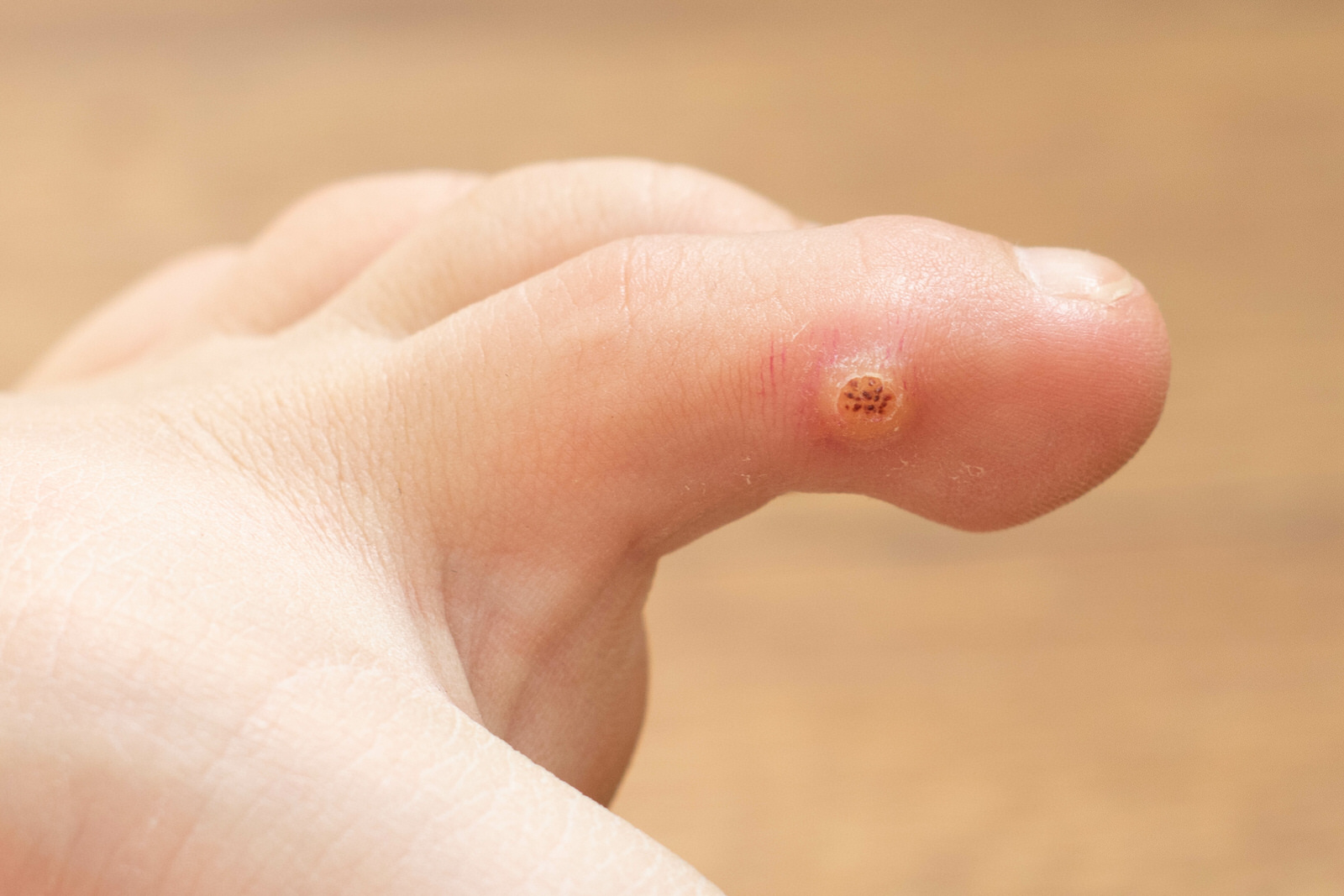
Though verrucas are so common, people still have loads of questions surrounding them. In fact, people even get confused about whether they have a verruca or corn. In this blog, we’ll tell you all the important things there are to know about verruca infections. Keep reading to learn more.
What Are Verrucas on Feet?
Verruca or verruca infections are a virus. It is caused by the Human Papillomavirus (HPV) and is highly contagious. Verrucas on feet are commonly spotted on the soles of the areas around one’s toes. These viruses thrive in moist environments and tend to cyclically be an outbreak in children at the park (like hand, foot, mouth disease). Verrucas tend to look kind of like cauliflowers, but then they flatten up because of pressure when they are on the soles of your feet.
Sometimes verrucas can be painless, but more often than not they are very uncomfortable and even painful to deal with. They can disappear overnight, or can be persistent for years on end.
What Is A Verruca Infection?
Verrucas are a type of wart that develop on your feet. This type of wart is specific to the feet and is surprisingly common. Verruca infections are usually harmless, and so many people aren’t even aware of their existence. You can either have a single verruca that develops on your foot, or you can also have a cluster of verrucae that covers a greater area on your foot.
Verruca infections are a result of a viral infection called the Human Papilloma Virus, or HPV for short. There are so many types of HPV, but in particular HPV 1, 2, and 4 are the subtypes that are most likely to lead to verrucae development.
How Do Verrucas on Feet Form?
As mentioned earlier, verruca infections are caused by the Human Papilloma Virus (HPV). There are lots of old wive’s tales surrounding the causes of verrucae, and the most common one is “swimming pools cause verrucae”. Though this is true, it needs a little more context. Swimming pools themselves do not cause the verruca infection, but since verrucae are highly contagious, it’s very easy to develop verrucae from being in the same swimming pool with someone who is affected.
Cross-infection is very common, and if you have a verruca and you’re walking around barefoot, you’ll probably infect the next barefoot person to walk on the same floor. You can also catch it by direct contact with another person’s verruca. In fact, you can even be contagious to yourself. If you have a verruca, and you touch it and then touch other parts of your body, you’re likely to spread the verruca infection.
Do I Have A Verruca or a Corn?
This question is an age-old one. Almost everyone asks this, because it is very easy to confuse a verruca for a corn. They are vastly different, however.
Most verrucae have black dots in their center, but some don’t, which leads people to mistake them for corns and allow them to grow. Verrucae are known to push the papillary lines on the foot, while corns do not do this.
Normally, verrucae are painful when pinched but not when pressed, while corns are the opposite.
To know more about how you can spot the differences between corns and verrucas, read this article.
Am I Susceptible To Verruca Infections?
This is a very subjective question. Everyone’s immune system is different, so some people may run the risk of developing verrucae while others don’t. You do, however, run the risk of getting verruca infections if you don’t partake in foot hygiene and take certain preventative measures.
How Can I Prevent Verrucae?
Verrucae are super common and are nothing to be ashamed of! Most people have developed a verruca infection at least once in their lives. You can follow these measures to reduce your risk of verruca infections:
- Try not to walk barefoot, especially in areas where other people walk barefoot.
- Don’t swim with a person who has a verruca infection.
- Try not to share yoga mats and clothing items.
- Avoid touching warts, be it your own or someone else’s.
- If you have to touch someone’s wart (or your own), make sure to thoroughly wash your hands after.
- Do not share footwear with anyone.
- Don’t try on shoes in shops without wearing socks first.
What Can I Do For Verruca Treatment?
In most cases, verrucae go away on their own. They can be an eyesore, however, which is why many people opt for verruca treatment. If you want to wait it out, you can, but this entails almost waiting for a couple of years. Verrucae take a long time to go away. If you want to opt for verruca treatment, we can help you at Bucksfoot Clinic. We’ll be able to diagnose your verruca and discuss treatment options, both clinical and home-based!
Conclusion
Now that you know everything you need to know about verruca infections, it’ll be easier for you to identify them and get the proper treatment required. In case you’re dealing with verrucas on your feet, or any other issue related to your feet, visit a podiatrist immediately.
Bucksfoot Clinic is here to help you! Book an appointment with us for quick and painless relief.
